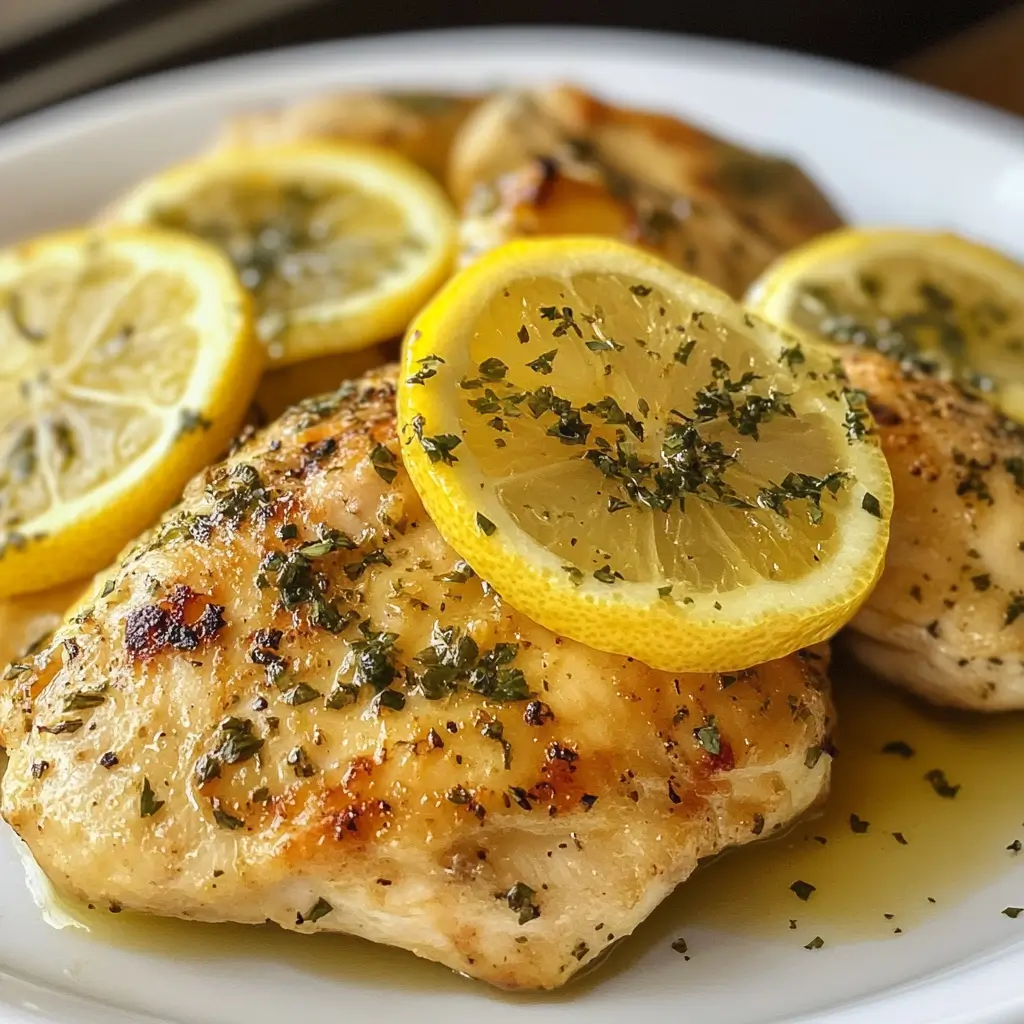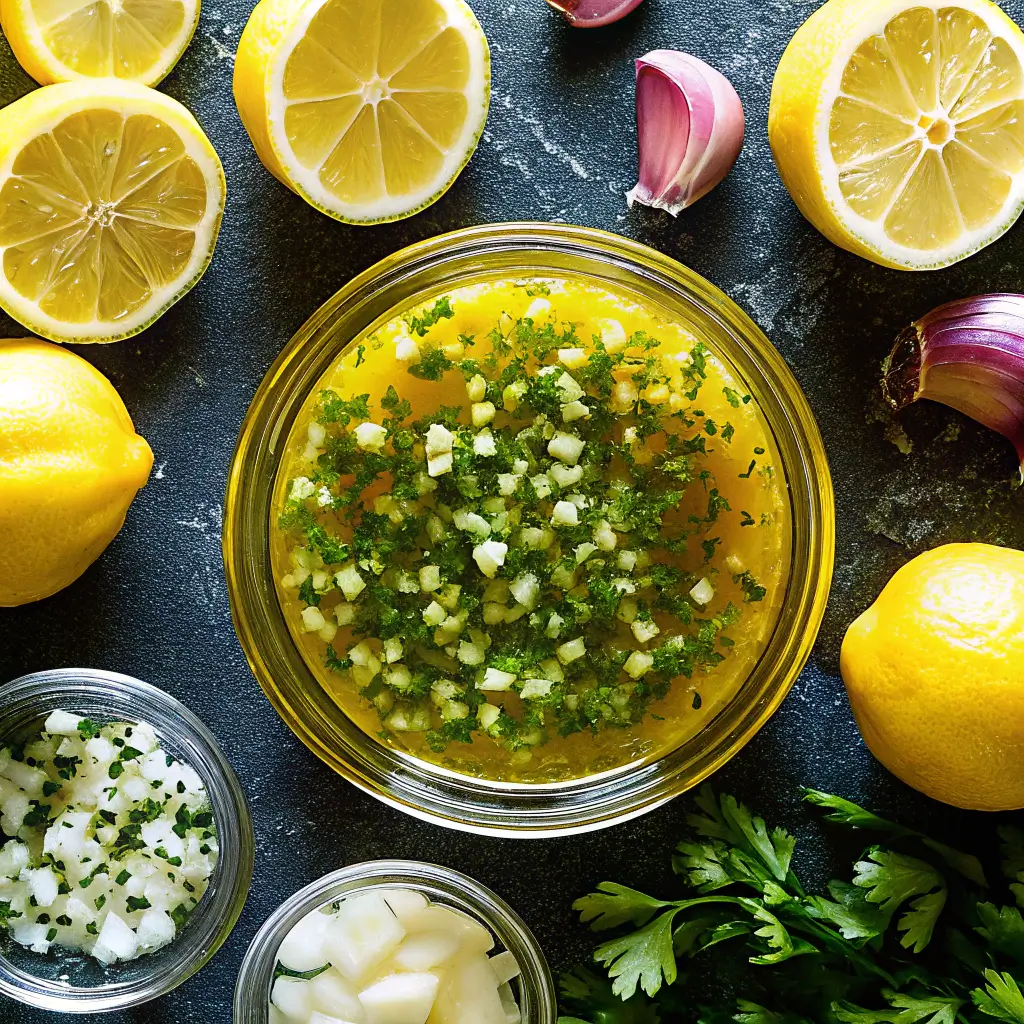Have you ever wondered, Why do you rub lemon on chicken before cooking? It’s more than just a culinary trick; it’s a practice steeped in science, tradition, and flavor enhancement. Lemon isn’t just a garnish—it’s a versatile ingredient that can transform the taste, texture, and overall quality of your chicken dish. This article delves into the science behind lemon’s effects on chicken, its culinary benefits, and methods to use it effectively. From understanding the chemistry to mastering techniques, let’s uncover the secrets behind this tangy ritual.
Table of contents
How Lemon Changes Chicken
How does lemon affect chicken
Why do you rub lemon on chicken before cooking? It’s because lemon’s acid breaks down proteins on the chicken’s surface, making it softer. This process, called denaturation, creates tender, flavorful meat.

However, there’s a catch. The acid only works on the surface; it doesn’t penetrate deeply into the meat. That’s why rubbing lemon on chicken is more about improving the exterior texture than making the entire piece tender. This subtle science is what makes lemon such a popular choice in marinades and rubs.Learn more about this in Why Rub Lemon on Chicken Before Cooking?.
Does lemon make chicken tender?
Citric acid, found abundantly in lemons, plays a pivotal role in altering the texture of chicken. By breaking down collagen—a protein found in connective tissues—it helps soften the meat’s tougher parts. This effect is particularly useful for tougher cuts of chicken or when preparing the bird for grilling or roasting.
Interestingly, this process is similar to how acids like vinegar or yogurt tenderize meat. But lemons have an added advantage: their refreshing tanginess pairs wonderfully with the natural flavors of chicken.
Misconceptions About Acid Penetration in Meat
Contrary to popular belief, lemon juice doesn’t seep deeply into chicken. Meat is dense and impermeable to most liquids, so the acid works only on the surface. Some people mistakenly think that leaving chicken in lemon juice for hours will enhance its flavor throughout. Unfortunately, overexposing chicken to acid can lead to a rubbery or tough texture instead of the desired tenderness.
To get the most out of lemon’s properties, a light rub or a short marinade time is key. This ensures a balance between flavor infusion and texture improvement without compromising the chicken’s quality.
Culinary Benefits of Using Lemon on Chicken
Flavor Infusion: Balancing Tang and Depth
Rubbing lemon on chicken is one of the simplest ways to add a punch of flavor. The tanginess of lemon complements the mild taste of chicken, creating a balance that excites the palate. By gently rubbing lemon juice over the meat or adding lemon zest, you can achieve a depth of flavor that feels both refreshing and complex.

What’s more, the natural acidity of lemon helps carry the other seasonings, enhancing the overall taste. Whether you’re grilling, roasting, or frying, this small step can make a world of difference. This brings us back to the question, Why do you rub lemon on chicken before cooking? The answer lies in how effortlessly it transforms a bland piece of chicken into a savory delight.
Neutralizing Odors and Enhancing Freshness
Sometimes, raw chicken can carry a slight odor that lingers even after washing. Lemon works as a natural deodorizer, cutting through unpleasant smells and leaving behind a fresh, citrusy aroma. When you rub lemon on chicken, it not only cleans the surface but also gives the meat a vibrant, clean feel.
Additionally, the citric acid in lemons acts as a mild preservative, slowing down bacterial growth on the surface of the chicken. This step can be especially useful when preparing chicken in hot or humid conditions.
Creating a Crispy Surface: The Role of Lemon in Skin Preparation
For those who love crispy chicken skin, rubbing lemon before cooking is a game-changer. The acid helps to tighten the proteins on the surface, which leads to a better sear when cooked. This effect is particularly noticeable when roasting or grilling, as the lemon enhances the golden, crispy texture we all crave.
Methods for Applying Lemon to Chicken
How do you use lemon before cooking?
When considering why do you rub lemon on chicken before cooking, it’s essential to understand the methods for effective application. One of the most common techniques is rubbing the chicken with freshly cut lemon halves. This process coats the surface with lemon juice, helping to tenderize the skin and impart a tangy flavor.
Another popular approach is marination. Combining lemon juice with olive oil, garlic, and herbs creates a marinade that can elevate the chicken’s taste profile. However, it’s crucial to limit the marination time to 2-3 hours to prevent the acid from toughening the meat.

For more inspiration on creating flavorful marinades, check out the recipe for Lemon Pepper Grilled Chicken on Zena Recipes.
When should you add lemon while cooking?
Using lemon while cooking is another excellent way to enhance flavor. Squeezing lemon juice over the chicken during the final minutes of grilling or roasting locks in a bright, citrusy finish. Adding lemon slices directly onto the chicken while baking infuses the dish with a subtle yet aromatic tang.
For fried chicken enthusiasts, incorporating lemon zest into the breading mixture can provide a surprising burst of flavor with every bite. No matter the method, timing is key to avoiding an overpowering citrus note.
What goes well with lemon?
Lemon’s versatility shines when paired with complementary ingredients. Combining lemon with garlic, thyme, or rosemary enhances the chicken’s savory flavors. For a spicy twist, try mixing lemon with chili flakes or paprika.
Adding vegetables like carrots, zucchini, or onions alongside lemon creates a balanced, flavor-packed meal. This combination not only boosts taste but also makes the dish visually appealing.
Environmental Impact: Choosing Lemons Wisely
Using lemons in cooking is not only about flavor; it also involves making environmentally conscious choices. Here’s how to ensure your lemon usage is sustainable:
- Sourcing Organic and Locally Grown Lemons: Organic lemons are grown without harmful pesticides, which benefits both your health and the environment. Additionally, sourcing lemons from local producers reduces the carbon footprint associated with long-distance transportation.
- Utilizing the Whole Lemon: Avoid waste by using every part of the lemon. The juice adds tanginess, while the zest can be used to infuse vibrant citrus flavors into dishes. Even the peel can be composted or repurposed as a natural cleaner.
- Supporting Sustainable Farming Practices: Look for certifications like Fair Trade or Rainforest Alliance to ensure that the lemons you purchase are grown using environmentally and socially responsible methods.
Innovative Culinary Uses of Lemon
Lemon is versatile and can be used in a variety of creative ways to enhance chicken dishes:
- Smoked Lemon Zest: Add a unique, smoky flavor by zesting a lemon and lightly smoking the zest over low heat. This pairs wonderfully with grilled chicken.
- Dehydrated Lemon Powder: Dehydrate lemon peels and grind them into a fine powder. This makes for a concentrated citrus seasoning that can be sprinkled on roasted or fried chicken for an extra burst of flavor.
- Lemon Butter Infusion: Combine melted butter with lemon juice and zest, then use it to baste chicken as it cooks. This creates a rich, tangy glaze that enhances the dish’s flavor profile.
- Lemon and Herb Ice Cubes: Mix lemon juice with fresh herbs like thyme, parsley, or basil and freeze in ice cube trays. These can be added to hot pans or slow cookers for an instant flavor boost while cooking chicken.
- Candied Lemon Garnish: Thinly slice lemons, candy them in sugar syrup, and use as a decorative and flavorful topping for chicken dishes with a sweet twist.
Expert Tips and Common Mistakes
Cooking with lemon requires a balance to avoid overpowering flavors or undesirable textures. Here are tips and pitfalls to watch for:
Expert Tips
- Timing is Key: Add lemon juice during the last stages of cooking to prevent excessive acidity and maintain its bright, fresh flavor.
- Use Zest Wisely: Lemon zest has a more concentrated flavor than juice. Incorporate it into marinades, breading, or as a finishing touch.
- Pairing with Herbs and Spices: Lemon works exceptionally well with thyme, rosemary, garlic, paprika, and black pepper. Experiment to find your favorite combinations.
- Balancing Acidity with Sweetness: If a dish becomes too tangy, counteract it with a small amount of honey or sugar for a balanced flavor.
Common Mistakes
- Over-Marinating: Leaving chicken in a lemon-based marinade for too long can result in a tough, rubbery texture. Limit marination to 2-3 hours for the best results.
- Using Too Much Lemon: Excess lemon juice can overpower the natural flavors of chicken. Use lemon sparingly and taste as you go.
- Skipping Fresh Lemons: Bottled lemon juice often lacks the vibrancy and depth of fresh lemons. Always opt for fresh lemons for optimal results.
- Ignoring Food Safety: Discard any leftover marinade that has come into contact with raw chicken. If you wish to use it as a sauce, boil it thoroughly first to kill any bacteria.
FAQs
Can marinating chicken in lemon overnight ruin it?
Yes, too long in lemon can make chicken mushy or tough. Limit marination to 2-3 hours.
Does lemon juice make chicken taste sour?
Not if used sparingly. It adds a tangy kick without overwhelming the flavor.
Are there alternatives to using lemon for similar effects?
Yes, try lime juice, vinegar, or yogurt for a similar tang and tenderizing effect.

